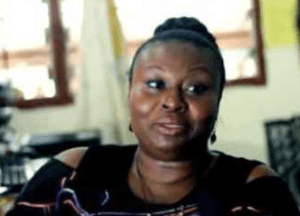Pass the Affirmative Action Bill now – FIDA

FIDA Ghana in partnership with Friedrich Ebert Stiftung (FES) has called on the legislature, government, and the incoming Minister for Gender, Children and Social Protection to prioritize the passage of the Affirmative Action Bill (AAB) now.
It said despite the assurances from the Executive, the momentum for the passage of the Bill seemed to be waning. The affirmative action law transcends party lines, and presents an opportunity for the two main political parties to join forces to ensure the passage of the Bill.
Speaking at a press conference on Thursday in Accra, Madam Susan Aryeetey, Acting Executive Director, FIDA, Ghana, said the press conference was to resuscitate discussions on the passage of the Bill, as the promise by the President, Nana Addo Dankwa Akufo- Addo and the Speaker of Parliament, Professor Mike Ocquaye, more than two years ago was fast becoming a mirage as the government stalls in passing the Affirmative Action Bill.
She said it was also to address the delay of the passage of the AAB, which was yet to reach the floor of Parliament.
“It is important to remind the legislature and decision makers that there are compelling reasons why women and girls require their encouragement and support in order to achieve full and effective growth. The draft AAB has addressed this by identifying the actions that various statutory bodies, political parties, security agencies and the private sector must do to promote affirmative action within their establishments.”
Madam Aryeetey said the Bill was both a human right and development issue, and not a battle of axe to hack away at male hegemony.
She noted that the gender statistics in Parliament has been a constant point of reference with 86.2 per cent male and 13.8 per cent female, saying these findings clearly demonstrated that despite the provisions under the national constitution and the ratification of various international human rights laws, such as the African Charter on human and people’s rights and CEDAW, these laws will only be beneficial if an affirmative action law is passed and implemented to create an environment, which was gender inclusive and gender responsive.
She said fewer women participated in formal decision-making and these resulted in diminished recognition of the interests of women in all spheres of governance, adding that this reinforces increased advocacy for the passage of an Affirmative Action law to encourage the integration of gender equality into both government and private sectors.
It was widely acknowledged, that the failure to include women and their perspectives in political decision making weakens the legitimacy of democratically elected institutions and deprived women who make up more than half of the population of their right to participate effectively in the governance of the societies.
She said, Ghana’s failure to promote gender equality will only serve to institutionalize the marginalization of women and women with disabilities from decision making which will set back the country’s development.
She noted that the absence of a substantive minister for Gender and social protection has also delayed the processes required to table the bill before parliament. This current legislature has the unique opportunity to change the history and to affirm the fact that an affirmative action law is rooted in the Constitutional principle of equal opportunity.
She called on parliamentarians not to fail Ghanaian women and girls, and urged the legislature to act on the Bill when Parliament resumed sitting in November 2018, and to expedite actions to vet the President’s nominee for the position of Gender Minister.
Dr Angela Dwamena-Aboagye, Executive Director, Ark Foundation, said the Bill was not about discriminating against another set, not women wanting to compete with men, but it was about making things fair.
She said it was about inclusiveness of women in decision and in places of public work and if there were issues regarding the provisions of the Bill, it was important to talk quickly so that women won’t feel left out.
The policy came out in 1998, which ensured that more women got into the space of education and there were benefits now, and it was important to show once again, as it was currently affecting Ghana’s image.
“Political will is very important. It’s not just about women, but national, social development, social justice, fellow feeling, responsive development.”
Dr Dwamena-Aboagye said when women got into places of public decision making, they thought about the things that would make families run, communities develop, about the environment, legal protection, safety in schools and brought such issues to the table because they lived through them.
She said it was important to understand that it was not just about the legalities of the bill but about the life of the woman when the values, intelligence, worth, ideas and even the benefit of their socialization are left out of national development resulting in skewed development.
She said a decision needed to be taken as a country, and this was not a competition, but social justice, fairness, fellow feeling. “If there is a national cake we come together, we make it and we share it, and whatever we share trickles down to the next generation”.
“If we want to make sure, the wheels of implementation of our legislation and policies are not clogged, the people who make them work are the people for whom these things are mostly created,” she added.
Source: GNA
